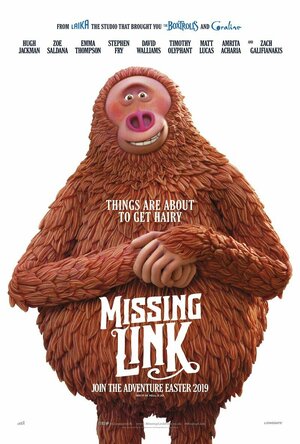
Cryptid
Book
Cryptozoologist Mike Kellogg studies the creatures of folklore and legend: cryptids. Some are well...
young-adult
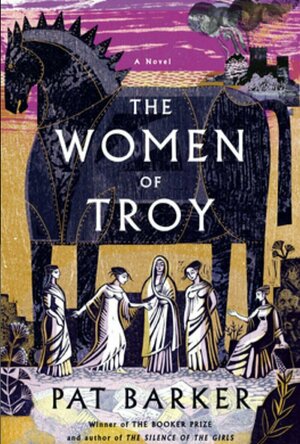
The Women of Troy
Book
Following her bestselling, critically acclaimed The Silence of the Girls, Pat Barker continues her...
Mythology Greek Mythology Folk Tales Myths and Fairy Tales
Goddess in the Stacks (553 KP) rated Empress of All Seasons in Books
Mar 20, 2019
Despite that, I really enjoyed this book. I loved the characters, the variety of yõkai, the bits of myth interspersed throughout the book. I do question Akira being trained to be a master of shuriken in a matter of days - like, really? And I wish instead of summarizing a ton in the epilogue, she'd just written a sequel, because I think there's enough material to do it. You'd think, with so much I didn't like about the book, that my overall opinion would be negative - but it's not. Even with all of those bad points, this book was enthralling and kept me reading right to the end.
Empress of all Seasons is a great Japanese-inspired fantasy that relies a little too much on old tropes. Set your inner critic to the side and just enjoy the ride, because the story is fantastic.
You can find all my reviews at http://goddessinthestacks.com
Cynthia Armistead (17 KP) rated and Falling, Fly (Harrowing #1) in Books
Mar 1, 2018
After the first few chapters, there's no slowing down, because you're as caught up in what's happening as the characters are. I was transfixed by White's descriptions, which can make even ugliness fascinating.
<blockquote>We are traveling into time, burning two hours for every one I endure beside this babbling, cursed child of Greece. I see them all the time, these bastard half children of stories and mortals, trapped between worlds, the genetic lineage of myth reasserting itself across the inextricable ages. Helen of Troy is born the socialite child of a partial Zeus mated to half of a swan-loving Leda, the mythic DNA in each of them dormant until they breed and damn their offspring with its expression.</blockquote>
White's vampire mythos is like no other I've encountered. I found it far more believable than most of what's being printed over and over and over again. Another refreshing thing about the book is that there's no feeling of a set up for a series. Oddly, though, I'm now seeing the book identified as the first of a series called Harrowing, at least on GoodReads, but as far as I can tell, the second book has no characters in common with the first. Perhaps it's simply set in the same universe?
In any case, I've added [b:In Dreams Begin|7850577|In Dreams Begin|Skyler White|http://photo.goodreads.com/books/1269478625s/7850577.jpg|10971303] to my to-read stack, and I'll be keeping an eye on [a:Skyler White|2977214|Skyler White|http://photo.goodreads.com/authors/1290046039p2/2977214.jpg].
Anne (15130 KP) rated The Killing Fog (The Grave Kingdom, #1) in Books
Nov 4, 2019
I always find myself easily lost and immersed in the worlds he creates and invested in the characters and the stories they have to tell. This story is very unique and different from others that Jeff Wheeler has written and just as amazing and engrossing as the others I have read.
In this story, we find ourselves following along with this story of an orphaned girl named Bingmei, who is with a group of mercenaries that serve a local ruler. They are sent on a mission to find and retrieve what treasures they can that are in a lost palace buried and preserved in ice. But when they get there, they find more than they bargained for and when they upset the tomb, they unknowingly cause havoc.
Bingmei unknowingly brings Echion, Dragon of the Night back to life, waking him from his tomb and now is meant to fulfill her part in the legendary prophecy. She has to destroy Echion before he takes over all the kingdoms and he has to stop her from destroying him. Bingmei knows what she has to do, but she doesn't know if she can do it.
This is in a world of ancient myth, legend, magic and is a story about love, loss, grief, balance, duty, honor and what people do when faced with difficult choices in heart-rending situations and so much more. You definitely want to have this one on your list, preorder it and read it as soon as you can.
Dale Lawson (13 KP) rated Missing Link (2019) in Movies
Feb 29, 2020
With a high calibre cast, this film is full of seasoned voice actors. So much so that it is actually difficult to identify the owner of each voice until the credits roll. This, for the most part, makes the film even more enjoyable as you aren’t left guessing actors or imagining them in the role.
Beginning with two characters on a quest for the Loch Ness Monster, the story is full of mystery and myth. It then becomes a predictable one, when it gets into its flow. For an adult, this can make the film a little expected. However, for a child this film is filled with hilarity. When watching with my three kids, there was non-stop laughter. From the naming of the Sasquatch to him forgetting swimwear, the room was full of joy.
Animation has always been a passion of mine, since I was young: from hand drawn to computer generated. My favourite had always been stop motion. Missing Link is primarily filmed in stop motion, using new techniques that allow for smoother facial transitions. The film’s adventurous nature encourages for exciting sets and explosive additional CGI that makes the film feel incredibly polished.
Captivating the attention of adults and children, alike, Missing Link provides an animated, family friendly adventure that teaches morals and respect. I can see why it won so many awards and challenges Toy Story 4 for the top place.
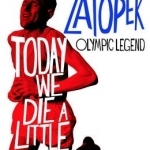
Today We Die a Little: The Rise and Fall of Emil Zatopek, Olympic Legend
Book
LONGLISTED FOR THE WILLIAM HILL SPORTS BOOK OF THE YEAR AWARD. The definitive biography of one of...
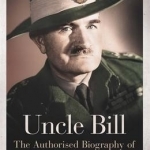
Uncle Bill: The Authorised Biography of Field Marshal Viscount Slim
Book
Masterly biography of the 'greatest commander of the 20th century'. Field Marshal Slim is less well...
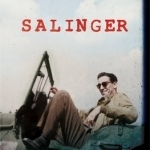
Salinger
David Shields and Shane Salerno
Book
Based on eight years of exhaustive research and exclusive interviews with more than 200 people-and...
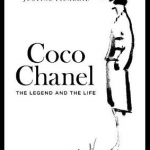
Coco Chanel: The Legend and the Life
Book
The much anticipated and beautifully illustrated Sunday Times Bestselling Biography Coco Chanel: The...



